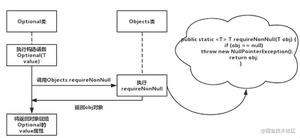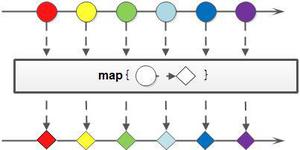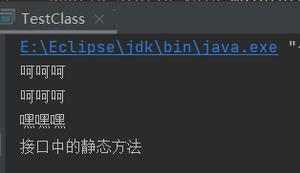Java8–PowerfulComparisonwithLambdas

This article is part of the “Java – Back to Basic” series here on Baeldung.
First, let"s define a simple entity class:
1
2
3
4
5
6
public
class
Human {
private
String name;
private
int
age;
// standard constructors, getters/setters, equals and hashcode
}
2. Basic Sort Without Lambdas
Before Java 8, sorting a collection would involve creating an anonymous inner class for the Comparator used in the sort:
1
2
3
4
5
6
new
Comparator<Human>() {
@Override
public
int
compare(Human h1, Human h2) {
return
h1.getName().compareTo(h2.getName());
}
}
This would simply be used to sort the List of Human entities:
1
2
3
4
5
6
7
8
9
10
11
12
13
14
15
@Test
public
void
givenPreLambda_whenSortingEntitiesByName_thenCorrectlySorted() {
List<Human> humans = Lists.newArrayList(
new
Human(
"Sarah"
,
10
),
new
Human(
"Jack"
,
12
)
);
Collections.sort(humans,
new
Comparator<Human>() {
@Override
public
int
compare(Human h1, Human h2) {
return
h1.getName().compareTo(h2.getName());
}
});
Assert.assertThat(humans.get(
0
), equalTo(
new
Human(
"Jack"
,
12
)));
}
3. Basic Sort with Lambda Support
With the introduction of Lambdas, we can now bypass the anonymous inner class and achieve the same result with simple, functional semantics:
1
(
final
Human h1,
final
Human h2) -> h1.getName().compareTo(h2.getName());
Similarly – we can now test the behavior just as before:
1
2
3
4
5
6
7
8
9
10
11
12
@Test
public
void
whenSortingEntitiesByName_thenCorrectlySorted() {
List<Human> humans = Lists.newArrayList(
new
Human(
"Sarah"
,
10
),
new
Human(
"Jack"
,
12
)
);
humans.sort(
(Human h1, Human h2) -> h1.getName().compareTo(h2.getName()));
assertThat(humans.get(
0
), equalTo(
new
Human(
"Jack"
,
12
)));
}
Notice that we"re also using the new sort API added to java.util.List in Java 8 – instead of the old Collections.sort API.
4. Basic Sorting With No Type Definitions
We can further simplify the expression by not specifying the type definitions – the compiler is capable of inferring these on its own:
1
(h1, h2) -> h1.getName().compareTo(h2.getName())
And again, the test remains very similar:
1
2
3
4
5
6
7
8
9
10
11
12
13
@Test
public
void
givenLambdaShortForm_whenSortingEntitiesByName_thenCorrectlySorted() {
List<Human> humans = Lists.newArrayList(
new
Human(
"Sarah"
,
10
),
new
Human(
"Jack"
,
12
)
);
humans.sort((h1, h2) -> h1.getName().compareTo(h2.getName()));
assertThat(humans.get(
0
), equalTo(
new
Human(
"Jack"
,
12
)));
}
5. Sort Using Reference to Static Method
Next, we"re going to perform the sort using a Lambda Expression with a reference to a static method.
First, we"re going to define the method compareByNameThenAge – with the exact same signature as the compare method in a Comparator<Human> object:
1
2
3
4
5
6
7
public
static
int
compareByNameThenAge(Human lhs, Human rhs) {
if
(lhs.name.equals(rhs.name)) {
return
lhs.age - rhs.age;
}
else
{
return
lhs.name.compareTo(rhs.name);
}
}
Now, we"re going to call the humans.sort method with this reference:
1
humans.sort(Human::compareByNameThenAge);
The end result is a working sorting of the collection using the static method as a Comparator:
1
2
3
4
5
6
7
8
9
10
11
12
@Test
public
void
givenMethodDefinition_whenSortingEntitiesByNameThenAge_thenCorrectlySorted() {
List<Human> humans = Lists.newArrayList(
new
Human(
"Sarah"
,
10
),
new
Human(
"Jack"
,
12
)
);
humans.sort(Human::compareByNameThenAge);
Assert.assertThat(humans.get(
0
), equalTo(
new
Human(
"Jack"
,
12
)));
}
6. Sort Extracted Comparators
We can also avoid defining even the comparison logic itself by using an instance method reference and the Comparator.comparing method – which extracts and creates a Comparable based on that function.
We"re going to use the getter getName() to build the Lambda expression and sort the list by name:
1
2
3
4
5
6
7
8
9
10
11
12
13
@Test
public
void
givenInstanceMethod_whenSortingEntitiesByName_thenCorrectlySorted() {
List<Human> humans = Lists.newArrayList(
new
Human(
"Sarah"
,
10
),
new
Human(
"Jack"
,
12
)
);
Collections.sort(
humans, Comparator.comparing(Human::getName));
assertThat(humans.get(
0
), equalTo(
new
Human(
"Jack"
,
12
)));
}
7. Reverse Sort
JDK 8 has also introduced a helper method for reversing the comparator – we can make quick use of that to reverse our sort:
1
2
3
4
5
6
7
8
9
10
11
12
13
14
@Test
public
void
whenSortingEntitiesByNameReversed_thenCorrectlySorted() {
List<Human> humans = Lists.newArrayList(
new
Human(
"Sarah"
,
10
),
new
Human(
"Jack"
,
12
)
);
Comparator<Human> comparator
= (h1, h2) -> h1.getName().compareTo(h2.getName());
humans.sort(comparator.reversed());
Assert.assertThat(humans.get(
0
), equalTo(
new
Human(
"Sarah"
,
10
)));
}
8. Sort with Multiple Conditions
The comparison lambda expressions need not be this simple – we can write more complex expressions as well – for example sorting the entities first by name, and then by age:
1
2
3
4
5
6
7
8
9
10
11
12
13
14
15
16
17
@Test
public
void
whenSortingEntitiesByNameThenAge_thenCorrectlySorted() {
List<Human> humans = Lists.newArrayList(
new
Human(
"Sarah"
,
12
),
new
Human(
"Sarah"
,
10
),
new
Human(
"Zack"
,
12
)
);
humans.sort((lhs, rhs) -> {
if
(lhs.getName().equals(rhs.getName())) {
return
lhs.getAge() - rhs.getAge();
}
else
{
return
lhs.getName().compareTo(rhs.getName());
}
});
Assert.assertThat(humans.get(
0
), equalTo(
new
Human(
"Sarah"
,
10
)));
}
9. Sort with Multiple Conditions – Composition
The same comparison logic – first sorting by name and then, secondarily, by age – can also be implemented by the new composition support for Comparator.
Starting with JDK 8, we can now chain together multiple comparators to build more complex comparison logic:
1
2
3
4
5
6
7
8
9
10
11
12
13
14
15
16
@Test
public
void
givenComposition_whenSortingEntitiesByNameThenAge_thenCorrectlySorted() {
List<Human> humans = Lists.newArrayList(
new
Human(
"Sarah"
,
12
),
new
Human(
"Sarah"
,
10
),
new
Human(
"Zack"
,
12
)
);
humans.sort(
Comparator.comparing(Human::getName).thenComparing(Human::getAge)
);
Assert.assertThat(humans.get(
0
), equalTo(
new
Human(
"Sarah"
,
10
)));
}
10. Sorting a List with Stream.sorted()
We can also sort a collection using Java 8"s Streamsorted() API.
We can sort the stream using natural ordering as well as ordering provided by a Comparator. For this, we have two overloaded variants of the sorted() API:
- sorted() – sorts the elements of a Stream using natural ordering; the element class must implement the Comparable interface.
- sorted(Comparator<? super T> comparator) – sorts the elements based on a Comparator instance
Let"s see an example of how to use the sorted() method with natural ordering:
1
2
3
4
5
6
7
8
@Test
public
final
void
givenStreamNaturalOrdering_whenSortingEntitiesByName_thenCorrectlySorted() {
List<
String
> letters = Lists.newArrayList(
"B"
,
"A"
,
"C"
);
List<
String
> sortedLetters = letters.stream().sorted().collect(Collectors.toList());
assertThat(sortedLetters.
get
(
0
), equalTo(
"A"
));
}
Now let"s see how we can use a custom Comparator with the sorted() API:
1
2
3
4
5
6
7
8
9
10
@Test
public
final
void
givenStreamCustomOrdering_whenSortingEntitiesByName_thenCorrectlySorted() {
List<Human> humans = Lists.newArrayList(
new
Human(
"Sarah"
,
10
),
new
Human(
"Jack"
,
12
));
Comparator<Human> nameComparator = (h1, h2) -> h1.getName().compareTo(h2.getName());
List<Human> sortedHumans =
humans.stream().sorted(nameComparator).collect(Collectors.toList());
assertThat(sortedHumans.
get
(
0
), equalTo(
new
Human(
"Jack"
,
12
)));
}
We can simplify the above example even further if we use the Comparator.comparing() method:
1
2
3
4
5
6
7
8
9
10
11
@Test
public
final
void
givenStreamComparatorOrdering_whenSortingEntitiesByName_thenCorrectlySorted() {
List<Human> humans = Lists.newArrayList(
new
Human(
"Sarah"
,
10
),
new
Human(
"Jack"
,
12
));
List<Human> sortedHumans = humans.stream()
.sorted(Comparator.comparing(Human::getName))
.collect(Collectors.toList());
assertThat(sortedHumans.get(
0
), equalTo(
new
Human(
"Jack"
,
12
)));
}
11. Sorting a List in Reverse with Stream.sorted()
We can also use Stream.sorted() to sort a collection in reverse.
First, let"s see an example of how to combine the sorted() method with Comparator.reverseOrder() to sort a list in reverse natural order:
1
2
3
4
5
6
7
8
9
10
11
@Test
public
final
void
givenStreamNaturalOrdering_whenSortingEntitiesByNameReversed_thenCorrectlySorted() {
List<String> letters = Lists.newArrayList(
"B"
,
"A"
,
"C"
);
List<String> reverseSortedLetters = letters.stream()
.sorted(Comparator.reverseOrder())
.collect(Collectors.toList());
assertThat(reverseSortedLetters.get(
0
), equalTo(
"C"
));
}
Now, let"s see how we can use the sorted() method and a custom Comparator:
1
2
3
4
5
6
7
8
9
10
11
@Test
public
final
void
givenStreamCustomOrdering_whenSortingEntitiesByNameReversed_thenCorrectlySorted() {
List<Human> humans = Lists.newArrayList(
new
Human(
"Sarah"
,
10
),
new
Human(
"Jack"
,
12
));
Comparator<Human> reverseNameComparator =
(h1, h2) -> h2.getName().compareTo(h1.getName());
List<Human> reverseSortedHumans = humans.stream().sorted(reverseNameComparator)
.collect(Collectors.toList());
assertThat(reverseSortedHumans.get(
0
), equalTo(
new
Human(
"Sarah"
,
10
)));
}
Note that the invocation of compareTo is flipped, which is what is doing the reversing.
Finally, let"s simplify the above example by using the Comparator.comparing() method:
1
2
3
4
5
6
7
8
9
10
11
@Test
public
final
void
givenStreamComparatorOrdering_whenSortingEntitiesByNameReversed_thenCorrectlySorted() {
List<Human> humans = Lists.newArrayList(
new
Human(
"Sarah"
,
10
),
new
Human(
"Jack"
,
12
));
List<Human> reverseSortedHumans = humans.stream()
.sorted(Comparator.comparing(Human::getName, Comparator.reverseOrder()))
.collect(Collectors.toList());
assertThat(reverseSortedHumans.get(
0
), equalTo(
new
Human(
"Sarah"
,
10
)));
}
12. Conclusion
This articles illustrated the various and exciting ways that a List can be sorted using Java 8 Lambda Expressions – moving right past syntactic sugar and into real and powerful functional semantics.
The implementation of all these examples and code snippets can be found in the GitHub project – this is an Eclipse based project, so it should be easy to import and run as it is.
以上是 Java8–PowerfulComparisonwithLambdas 的全部内容, 来源链接: utcz.com/z/513071.html









